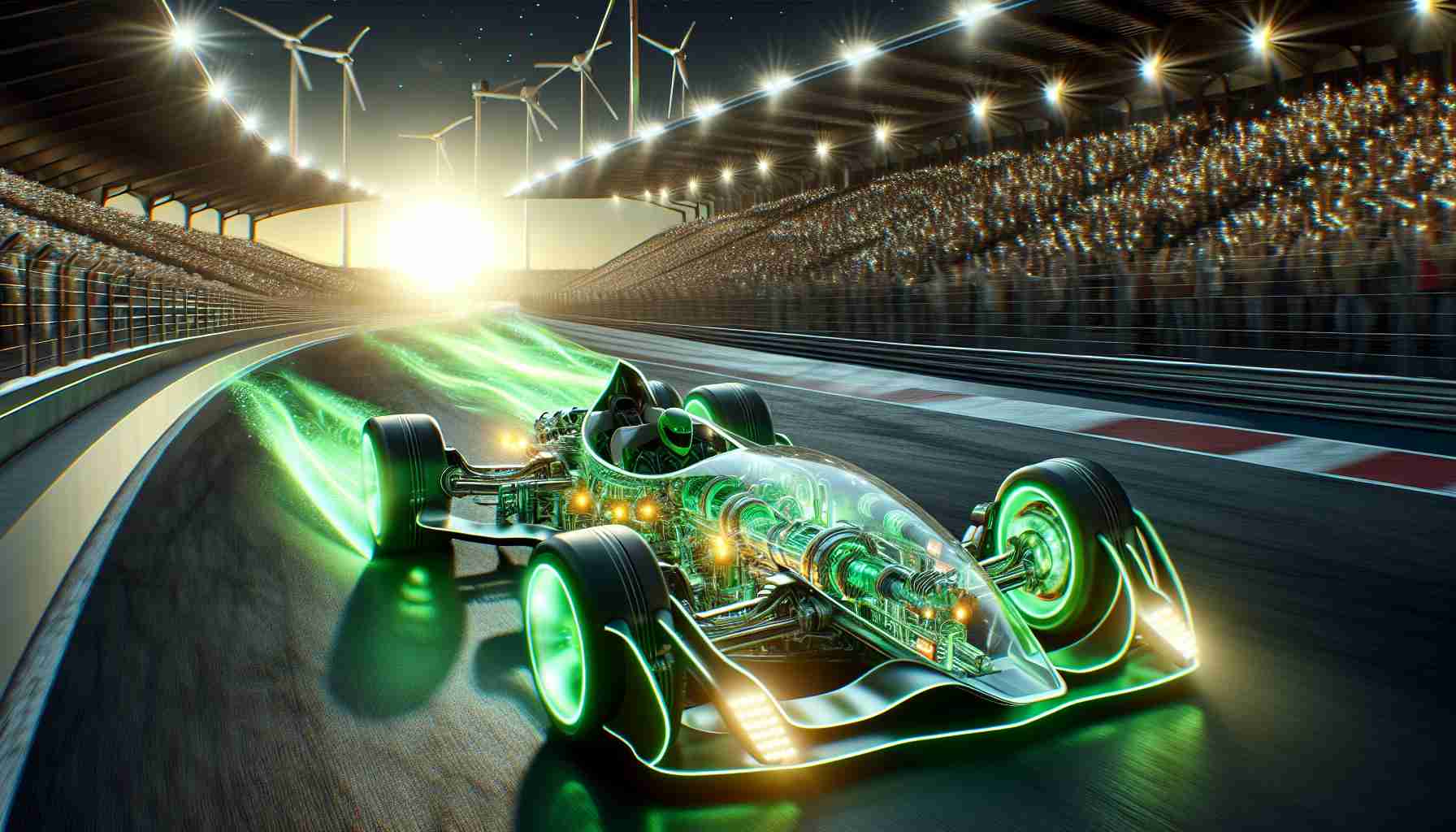The latest automotive advancements are pushing the boundaries of traditional engine designs, particularly in the realm of hydrogen technology. An innovative 2.0-liter turbocharged hydrogen engine has made its debut, developed by AVL, an esteemed Austrian engineering firm. This groundbreaking engine operates at a remarkably low temperature of 90°C and incorporates a unique water injection method that intrigues experts and enthusiasts alike.
Unlike conventional combustion engines that rely on fossil fuels, this hydrogen engine utilizes hydrogen as its primary fuel and employs water to enhance combustion efficiency. While traditional engines emit harmful pollutants such as carbon dioxide and sulfur dioxide, hydrogen combustion primarily releases nitrous oxides, a pollutant that poses its own challenges. However, AVL’s clever integration of water injection cools the combustion chamber, significantly reducing NOx emissions and maintaining high performance levels—up to 410 horsepower.
Compared to the prevalent fuel cell technology, which converts hydrogen into electricity for electric motors, AVL’s engine preserves the sensory experience of driving a classic combustion engine. This design resonates with motorsport enthusiasts who prefer the raw feel and sound of traditional engines. Furthermore, it offers an economical alternative to fuel cells, making it easier for teams to transition from gasoline engines.
As motorsport gears up for a greener future, AVL’s hydrogen combustion engine stands poised to redefine high-performance racing while addressing environmental concerns, potentially paving the way for a new era in sustainable motorsports.
Revolutionizing Racing: The Future of Hydrogen Combustion Engines
Introduction to Hydrogen Technology in Automotive Engineering
The automotive industry is undergoing a significant transformation as advancements in hydrogen technology promise to reshape the landscape of high-performance vehicles. Among the latest innovations is the cutting-edge 2.0-liter turbocharged hydrogen engine developed by AVL, a leading engineering firm based in Austria. This engine not only holds the potential to enhance driving experiences but also aims to address pressing environmental issues associated with traditional combustion engines.
Key Features of AVL’s Hydrogen Engine
– Low Operating Temperature: The AVL hydrogen engine operates at a remarkably low temperature of just 90°C, which is crucial for improving engine longevity and efficiency.
– Water Injection System: The unique water injection method enhances combustion efficiency and combats the formation of harmful NOx emissions, allowing for a cleaner alternative to traditional fuels.
– High Performance: Delivering up to 410 horsepower, this engine does not compromise on power, making it an attractive option for performance enthusiasts.
Comparison: Hydrogen Combustion vs. Fuel Cell Technology
– Driving Experience: Unlike fuel cell vehicles that convert hydrogen into electricity to power electric motors, AVL’s hydrogen combustion engine offers a more visceral driving experience akin to traditional combustion engines. This feature appeals to motorsport fans who cherish the sound and feel of powerful engines.
– Cost-Effectiveness: With a simpler integration process, AVL’s hydrogen engine presents a more economical option for racing teams looking to transition from gasoline engines, potentially leading to broader adoption in the motorsport community.
Pros and Cons of Hydrogen Combustion Engines
Pros:
– Environmental Benefits: Reduced NOx emissions thanks to water injection technology, contributing to cleaner air and lower pollution levels.
– Driving Enjoyment: Retains the excitement and engagement of driving a conventional engine while utilizing eco-friendly fuel.
– Performance: High horsepower output keeps pace with traditional racing standards.
Cons:
– NOx Emissions Concerns: Although lower than conventional engines, NOx still poses environmental challenges that need addressing.
– Market Acceptance: The transition from well-established gasoline engines to a new technology could face resistance from traditionalists within the motorsport community.
Use Cases and Market Trends
As the demand for sustainable racing solutions rises, AVL’s hydrogen engine is poised to be an attractive choice for teams looking to remain competitive while minimizing their carbon footprint. The integration of hydrogen technology in motorsports may inspire innovations and adaptations across various sectors, encouraging a shift toward more sustainable automotive practices.
Future Insights and Predictions
The development of the AVL hydrogen combustion engine marks a critical step towards blending high performance with sustainability. As the automotive industry continues to innovate, a significant increase in hydrogen infrastructure, such as fueling stations, would bolster the acceptance of hydrogen-powered vehicles. Experts predict that within the next decade, hydrogen technology could dominate not only motorsports but also everyday automobiles, fundamentally altering consumer perceptions and industry standards.
Conclusion
The automotive advancements surrounding hydrogen combustion technologies promise exciting changes for motorsports and sustainable driving. With AVL leading the charge, the future may very well hold a harmonious blend of power and responsibility, transforming the way we think about performance vehicles.
For more insights into automotive innovations, visit AVL.














